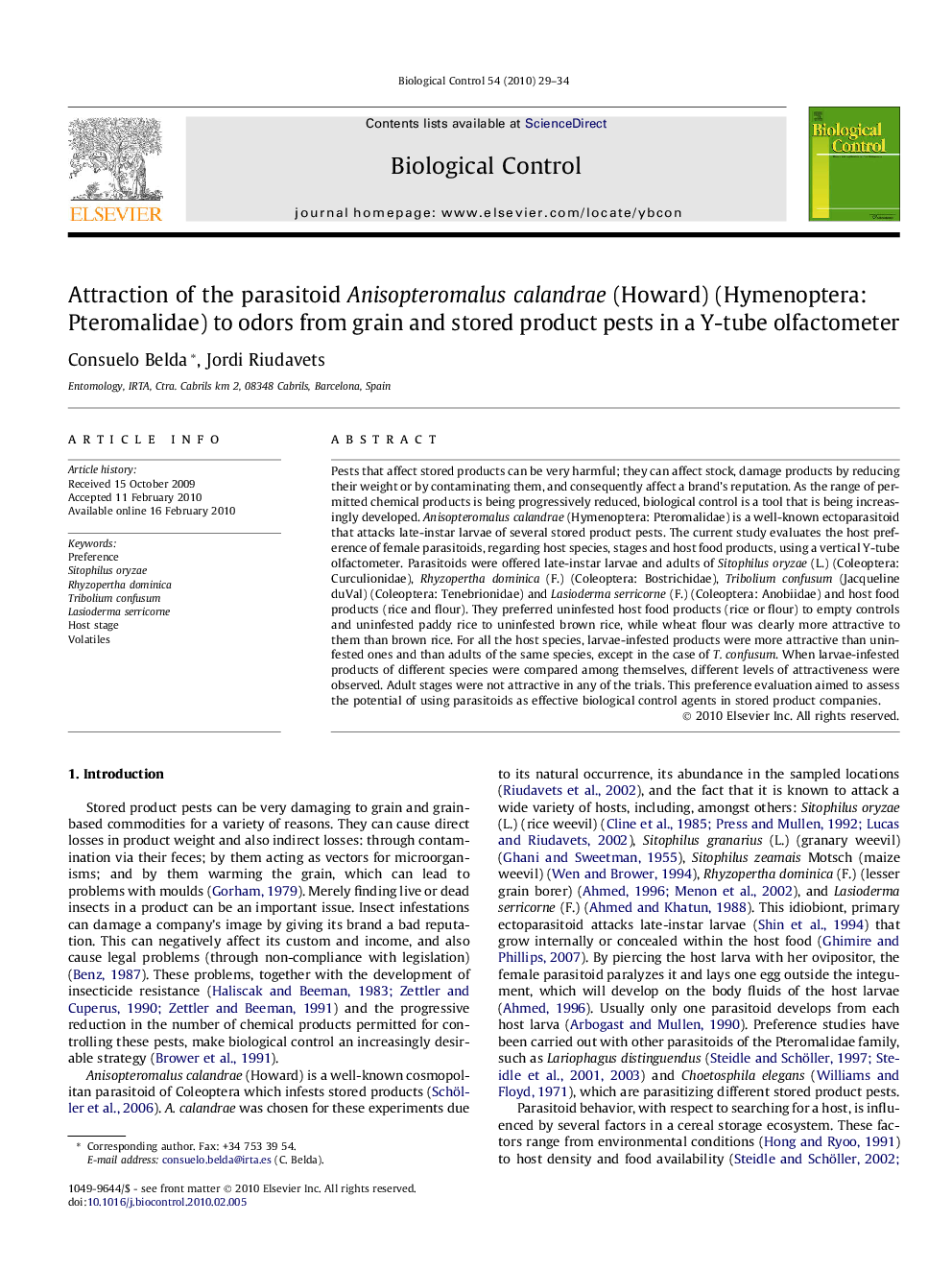| Article ID | Journal | Published Year | Pages | File Type |
|---|---|---|---|---|
| 4504495 | Biological Control | 2010 | 6 Pages |
Pests that affect stored products can be very harmful; they can affect stock, damage products by reducing their weight or by contaminating them, and consequently affect a brand’s reputation. As the range of permitted chemical products is being progressively reduced, biological control is a tool that is being increasingly developed. Anisopteromalus calandrae (Hymenoptera: Pteromalidae) is a well-known ectoparasitoid that attacks late-instar larvae of several stored product pests. The current study evaluates the host preference of female parasitoids, regarding host species, stages and host food products, using a vertical Y-tube olfactometer. Parasitoids were offered late-instar larvae and adults of Sitophilus oryzae (L.) (Coleoptera: Curculionidae), Rhyzopertha dominica (F.) (Coleoptera: Bostrichidae), Tribolium confusum (Jacqueline duVal) (Coleoptera: Tenebrionidae) and Lasioderma serricorne (F.) (Coleoptera: Anobiidae) and host food products (rice and flour). They preferred uninfested host food products (rice or flour) to empty controls and uninfested paddy rice to uninfested brown rice, while wheat flour was clearly more attractive to them than brown rice. For all the host species, larvae-infested products were more attractive than uninfested ones and than adults of the same species, except in the case of T. confusum. When larvae-infested products of different species were compared among themselves, different levels of attractiveness were observed. Adult stages were not attractive in any of the trials. This preference evaluation aimed to assess the potential of using parasitoids as effective biological control agents in stored product companies.
